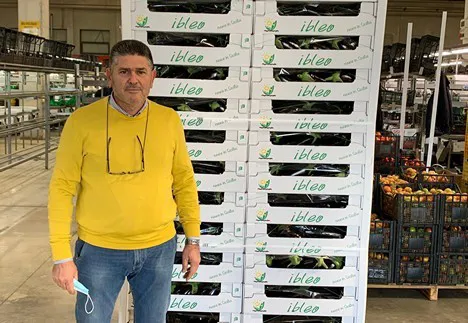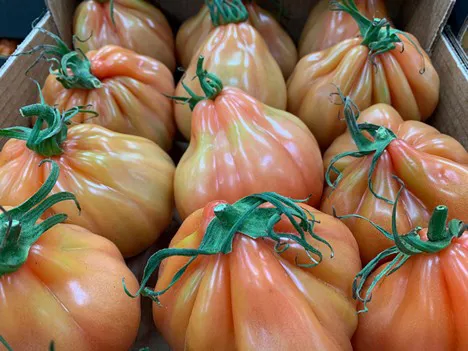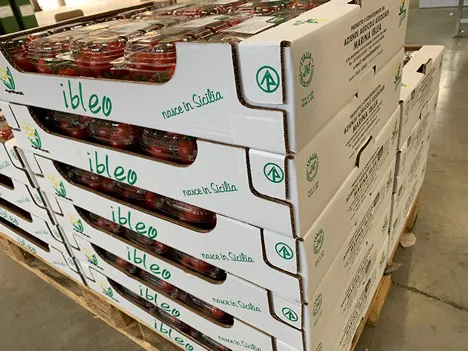"After a start of the year marked by a recovery, which was actually quite brief for some vegetables like courgettes and eggplants, we are now seeing a general downturn, which also includes date tomatoes. However tomatoes are maintaining good quotations," said Giuseppe Licitra, administrator of the Sicilian company Marina Iblea.
 Giuseppe Licitra
Giuseppe Licitra
"Date tomatoes are suffering on the one hand from a production surplus and on the other hand from a slowdown in consumption due to the pandemic. Prices for this crop currently hover between €1.50 and €1.70 per kilo," continued Licitra.
"Despite the current socio-economic situation, our company is not in difficulty when it comes to certain references. This is because we have a large sales network and we strive for high quality standards. The oxheart tomato is obtaining good results in terms of quantity and quality and the price ranges between €1.50 and €1.60 per kilogram."

"Today we are faced with difficulties that did not exist 20 to 30 years ago. Not to mention the bureaucracy that increasingly entangles and complicates our activities. Moreover, we are not protected by governments or competent authorities. And then we also have to deal with unfair competition. There are crops coming from (emerging) nations that are grown at lower costs and are not subject to our legal provisions. So competition is becoming increasingly intense and Sicilian growing areas are losing out in the equation."

"Then we also have to deal with the ToBRFV. The less structured farms are not equipped to tackle this virus and do not have enough tools to contain it. Small growers who once symbolized economic independence are now risking a severe economic downturn."
"Currently, it seems that the bigger farms are able to contain ToBRFV. Targeted fertilization, short cycles and specific cultivation techniques can keep the virus at bay, but this requires continuous investments that small farms cannot afford. The agreements with the retail sector have not stopped and this shows the growing gap between modern and traditional horticulture, with the latter being threatened with extinction," concluded Licitra.
Contact:
Marina Iblea Soc. Cons. Agr. a r.l.
C/Da Gaddimeli, S. P. 36 Km 3,8 sn,
97010 Marina Di Ragusa (RG) - Italy
Phone.: +39 3358121639
Fax: +39 0932 616289
Email: giorgiolicitra.92@libero.it
Website: www.marinaiblea.it
